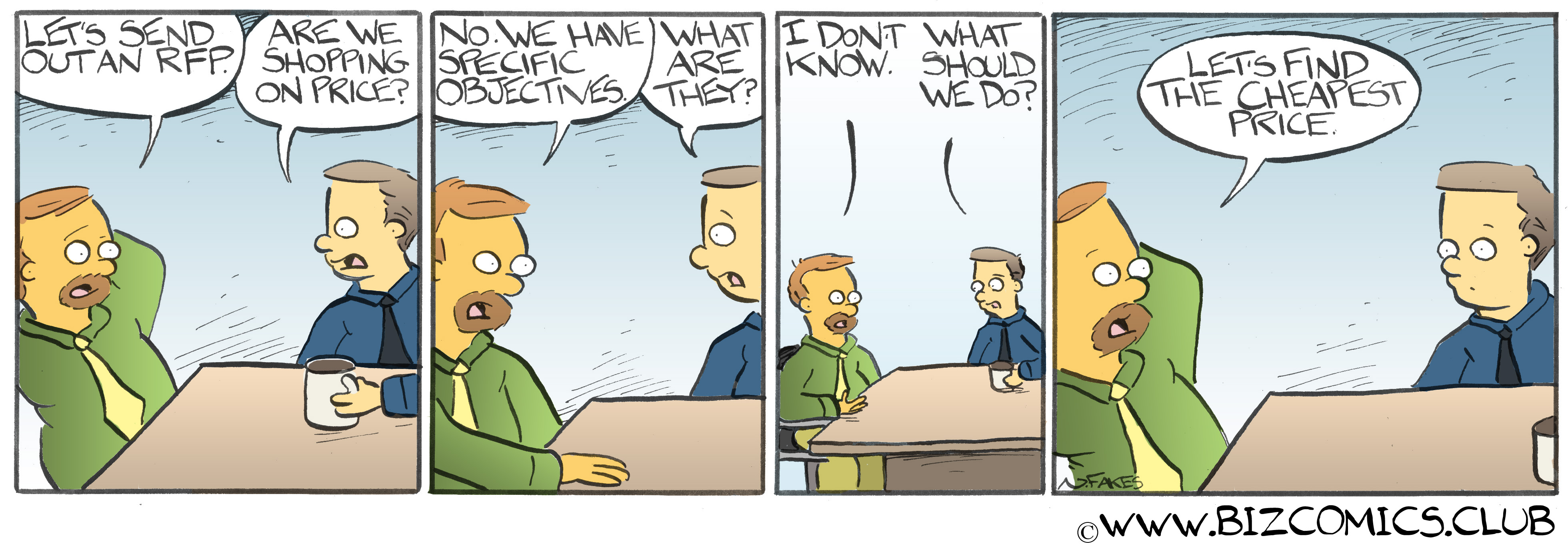We don’t like to generalize. But we’re going to do it anyway: RFPs are a waste of just about everything.
We’d have imagined that to be common knowledge by now. But given the number of organizations that still rely on RFPs, we’re guessing everyone hasn’t gotten the memo yet. While it’s making the rounds, let’s take a look at the deficiencies of RFPs, shall we?
1. They’re entirely reactive. Okay. We know what you’re thinking: “No! They constitute the active initiative to get what we want!” Not so fast. The fact is you’re likely sending out your latest RFP in response to a fairly recent disaster. But the folks who precipitated or participated in that disaster are gone or don’t have access to the history of it. So, they’re ill-equipped to prevent its second coming. Consequently, since you still don’t know what went wrong or what you want, you’ll waste time, money, and energy creating the RFP.
2. They’re wish lists. They typically contain no clearly articulated strategic objectives. They define few, if any, specific requirements. But they mandate an impossible laundry list of tactical activities, to be completed in impossibly little time, necessitating an impossibly deep bench comprising impossibly diverse skills, talents, aptitudes, and abilities. If you can just pack enough stuff into this RFP, maybe you can preclude Big Disaster: The Sequel
3. Organizations that issue RFPs are shopping on price. You know how you can tell? By the vehemence with which they deny they’re shopping on price. (Never believe anything until it’s officially denied.) And here’s why they’re shopping on price: Since the RFP contains no clear objectives or requirements — and since the activities and resources it mandates are impossible — the people who put it together think they won’t get fired if the organization doesn’t pay a lot for Big Disaster: The Sequel.
RFPs constitute the ready-fire-aim approach to accomplishing anything. We’d be doing the organizations clueless enough to send them out — and the organizations desperate enough to respond to them — a public service by driving a stake through the heart of every RFP. Sensible people would consider them mercy killings.
The RFP is dead. Long live the RFP.

